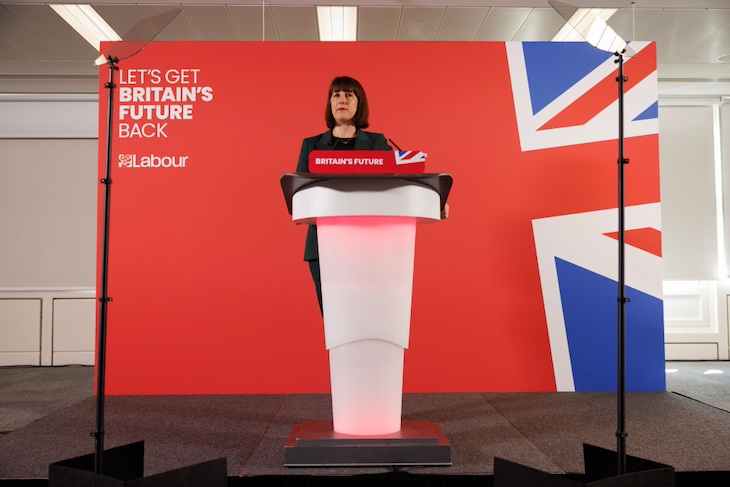It’s all but certain that the UK’s exit from recession will be confirmed at the end of this week. Preliminary Q1 data, released on Friday, is expected to how slow and steady growth in the first three months of the year.
It is also very likely that inflation will return to the government target of 2 per cent this month, due to Ofgem’s changes to the energy price cap last month and higher energy costs falling out of the data. The return to target may not last – which is one of the reasons hopes for a spring rate cut have been dashed. But all this will help cushion what is expected to be another decision by the Bank of England to hold rates at 5.25 per cent on Thursday. Threadneedle Street may be erring on the hawkish side, but a rate cut is still expected – possibly this summer.
Neither the Conservative party nor the Labour party is disputing this narrative – though they have come to radically different political conclusions. On several visits in London today, Rishi Sunak is making the case that improving economic conditions mean voters should stick to the Tory plan – and give the party’s candidates more of a chance than they did at the local elections. Meanwhile, Rachel Reeves has told the City of London that although ‘by the time of the next election, we can, and should, expect interest rates to be cut, Britain to be out of recession and inflation to have returned to the Bank of England’s target,’ the government is ‘gaslighting’ voters by pretending the economic picture is rosy. There is ‘no plan’ she told her audience, to improve how well-off workers actually feel.
The debate continued during Treasury Questions this afternoon, where Chancellor Jeremy Hunt insisted Reeves was at risk of downplaying the importance of a lower inflation rate and the prospect of falling interest rates. Hunt, meanwhile, was challenged on whether people are fully feeling the impact of this change. ‘Living standards, which were predicted to fall by 2 per cent last year, rose by nearly 1 per cent,’ the Chancellor noted. ‘And we’re on track to reach pre-pandemic living standards two years early.’ But this good news underlines the outstanding problem: GDP per capita remains below February 2020 levels. While plenty of external factors have contributed to this lagging recovery, it is a painful reality nonetheless.
The difficulty for both parties is what exactly they would do differently. Asked today if the shadow chancellor would unfreeze tax thresholds (a large contributor to the rising tax burden) Reeves insisted she was not ‘going to make any unfunded tax cuts or spending commitments’ – which sounds a lot like no. Both parties have said they will recommit to Jeremy Hunt’s fiscal rule – to get debt falling as a percentage of GDP on a five-year, rolling period – which does allow for some wiggle room in the public finances. This loose fiscal rule has made possible, and will continue to make possible, slightly higher borrowing in the short-term (so long as markets don’t get spooked).
To address the UK’s economic problems will mean continuing to make changes at the margin – or a meaningful attempt to grow the economy. Here, Labour continues to assert that it will tap into some of Britain’s most ripe areas for reform: particularly the planning system. As is so often the case, details remain sparse.







Comments